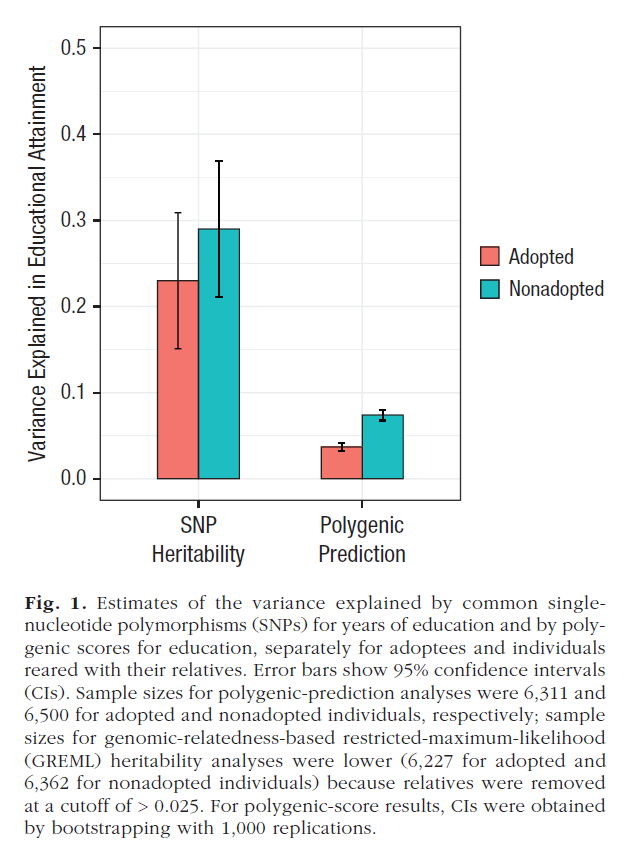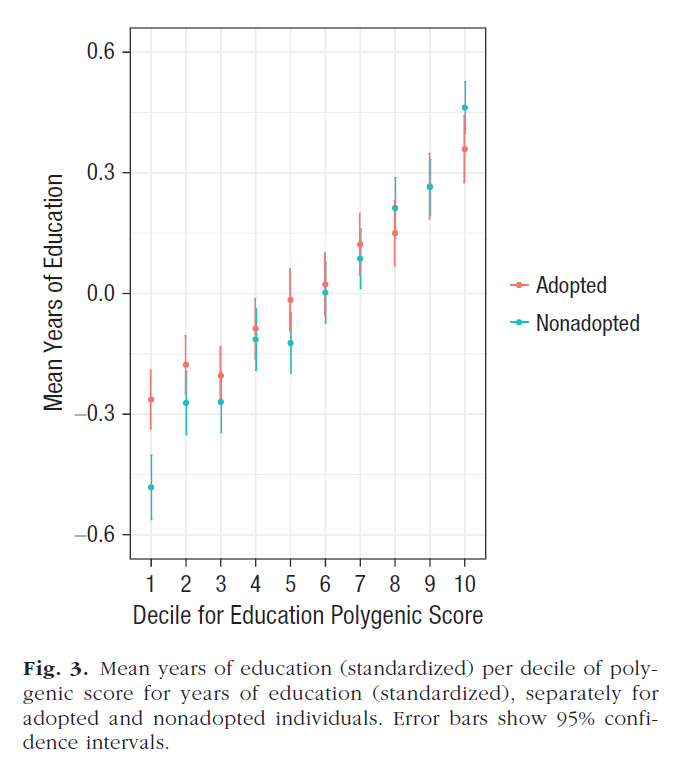Interesting: Genes predict people& #39;s educational outcomes better if they were raised by biological parents than adopted. That& #39;s because biological parents share many of the same genes, and genes help shape how people raise their kids. https://journals.sagepub.com/doi/abs/10.1177/0956797620904450">https://journals.sagepub.com/doi/abs/1...
So, for people raised by their biological parents, some of what their genes predict is the effect of nurture. But that nurture was shaped in part by their parents& #39; nature – and people& #39;s genes predict their parents& #39; nature because parents and offspring share 50% of the same genes.
Nurture is equally involved in shaping the educational outcomes of adopted children, and that nurture was shaped in part by the adoptive parents& #39; nature. The only difference is that people& #39; genes don& #39;t predict their adoptive parents& #39; nature, because they& #39;re genetically unrelated.
How do we know it& #39;s not just that kids& #39; nature helped shape their home environment, which in turn helped shape them back? Well, that& #39;s probably happening as well (it& #39;s called evocative gene-environment correlation). However…
…if that were the whole story, there& #39;d be no difference in the predictive power of the genes of adopted vs. non-adopted kids. That difference shows an independent effect of the home environment, shaped by the parents& #39; nature, not the kids& #39; (passive gene-environment correlation).
How does this fit with evidence from twin & adoption studies that the home environment has surprisingly little impact on how people turn out – i.e., the finding that people reared together aren& #39;t much more similar than equally related people reared apart? https://twitter.com/SteveStuWill/status/1093449299411619840">https://twitter.com/SteveStuW...
First, the safest generalization here is "Depending on the trait, the home environment often has surprisingly little impact, and maybe sometimes none" rather than "The home environment has no impact."
Second, this applies largely to adults; the home environment often has considerable impact in childhood. And educational outcomes are often largely determined before full adulthood. (More than 50% of participants in this study had finished their education by 20.)

 Read on Twitter
Read on Twitter



